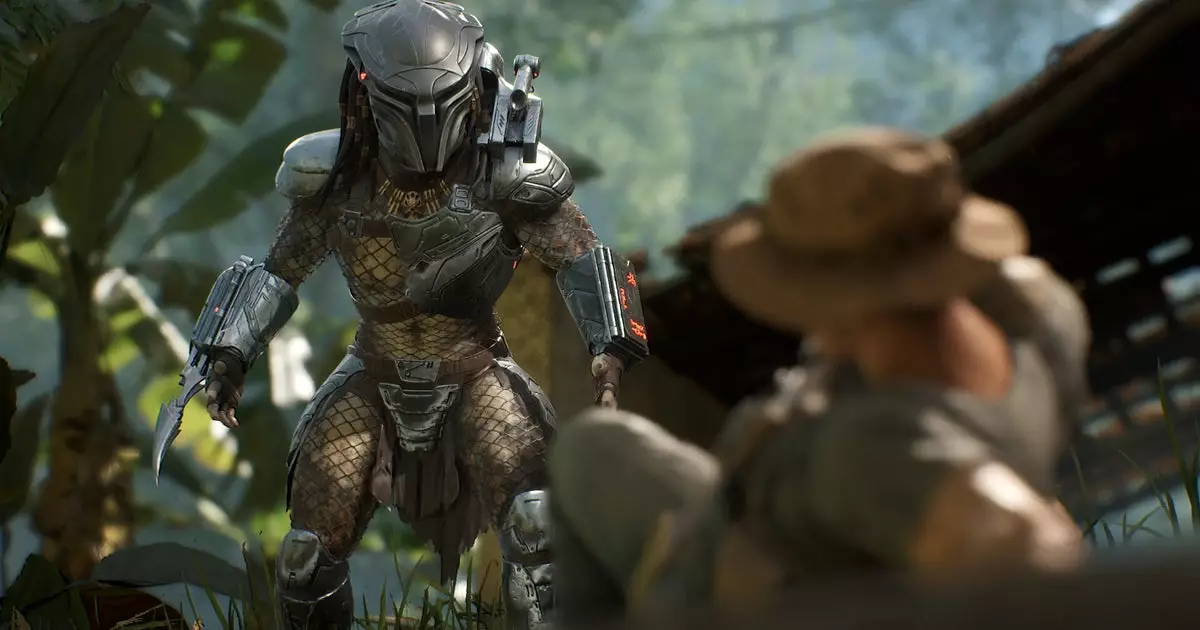The gaming industry, once filled with fervor and explosive growth, now finds itself navigating tumultuous waters, as evident from IllFonic’s recent announcement regarding workforce layoffs. The studio, known for its titles like *Friday The 13th: The Game* and *Predator: Hunting Grounds*, has informed its staff of cuts aimed at “re-aligning” the company to a “refined strategy.” This significant yet ambiguous move raises pressing questions about the stability of game development studios and the broader industry landscape.
The harsh realities of the current market conditions were highlighted by IllFonic’s CEO, Charles Brunghardt, in a LinkedIn statement that underscored the painful impact of the industry’s state on staffing. Although the layoffs were not quantified, such actions invariably send ripples of concern throughout the gaming community, particularly among the dedicated developers who may now be seeking new employment opportunities.
One cannot overlook the potential impact of the expiration of the licensing rights for *Friday the 13th*, which may have played a pivotal role in IllFonic’s need to restructure. The game was pulled from sale last December, resulting in a loss of a significant revenue stream. Additionally, the studio’s more recent offerings, including *Ghostbusters: Spirits Unleashed* and *Killer Klowns from Outer Space: The Game*, seem to lack the traction necessary for sustained success in a fiercely competitive market, as suggested by low activity metrics on platforms like Steam.
These circumstances illustrate a growing challenge for studios that rely heavily on licensed content. When those rights expire or the games fail to find an audience, the financial implications can be devastating. It begs the question: how can studios strategically navigate contracts and licensing agreements to ensure long-term viability?
Compounding these challenges is the evolving demographics of the gaming audience. IllFonic’s attempts to diversify the appeal of their asymmetrical horror games have uncovered a crucial insight—the traditional hardcore gamer demographic is not the sole market. As stated by Chief Creative Officer Jared Gerritzen, the goal was to cultivate an inviting experience for casual players, allowing fans of the original franchises, regardless of their gaming experience, to engage with the content. Yet, the immediate aftermath shows uncertainty about whether this approach has resonated well with the intended audience.
The challenge lies in finding a balance: catering to the original fanbase while simultaneously attracting new players. If IllFonic’s transition to a more universally appealing gaming model does not yield increased player engagement, the consequences could be dire.
What’s more disheartening is that IllFonic’s layoffs are not isolated. The industry as a whole has faced significant upheaval in recent years, with unofficial reports suggesting that approximately 14,000 jobs were lost in 2024 alone—a stark increase from 10,500 the previous year. Ubisoft’s decision to cut 277 positions while “sunsetting” *XDefiant* exemplifies a broader trend, where even established names grapple with the financial realities of shifting consumer interests and market saturation.
The euphemisms that corporations employ to mask the severity of job losses, such as IllFonic’s use of “refining,” underscore a troubling disconnect between leadership’s language and the lived experiences of those affected. It reflects a harsh corporate culture that can often prioritize strategic restructuring over the well-being of employees, further contributing to an already strained job market.
IllFonic’s layoffs are emblematic of a larger narrative within the gaming industry—a landscape increasingly marked by volatility and uncertainty. As studios grapple with licensing issues, shifting player dynamics, and a challenging job market, the road ahead may require innovative thinking and adaptive strategies. The future of gaming lies in balancing commercial viability with the nurturing of creative talent, an endeavor that will require both industry leaders and developers to rethink traditional paradigms. The implications of these workforce shifts extend far beyond IllFonic, foreshadowing a potentially transformative moment for the gaming community at large. Best of luck to those affected; the industry will need their expertise as it navigates these complex challenges.


Leave a Reply